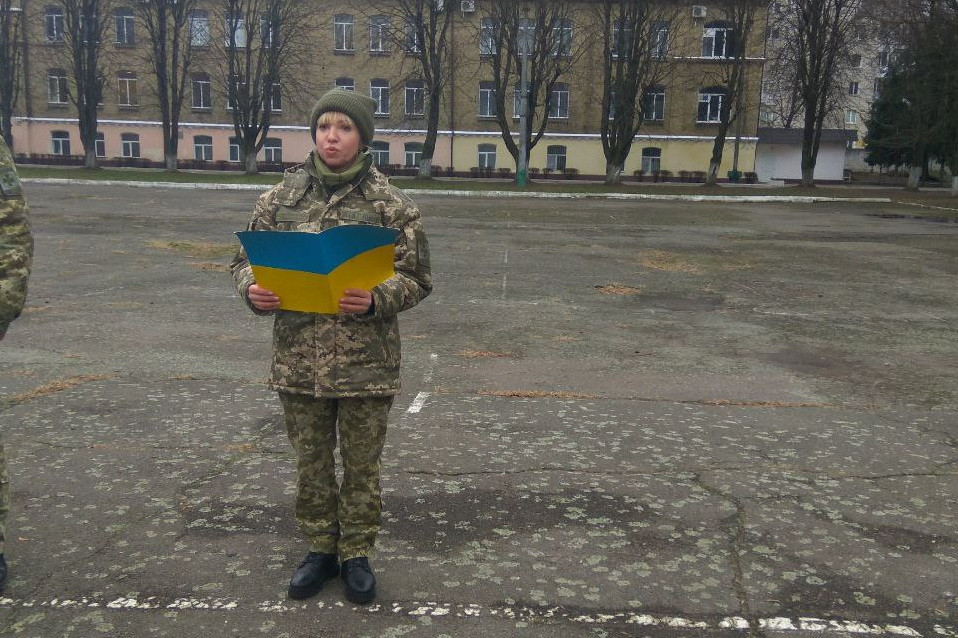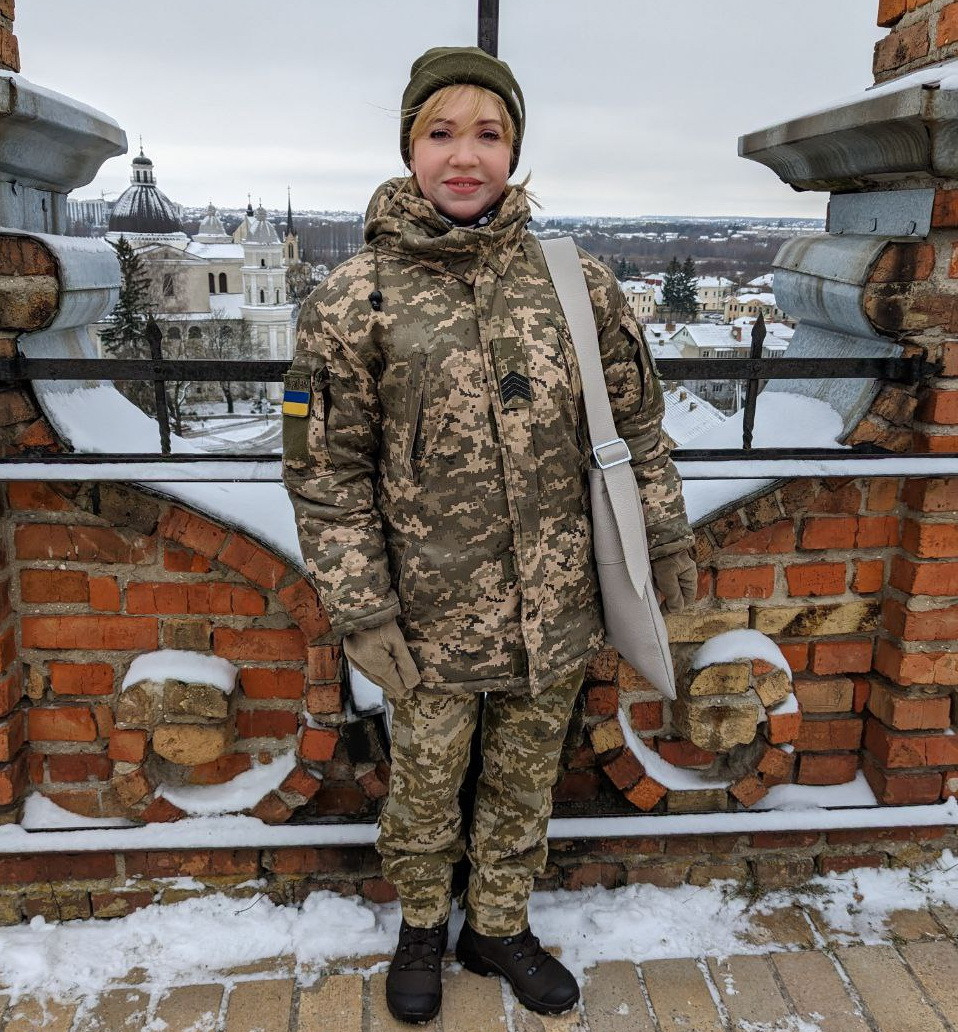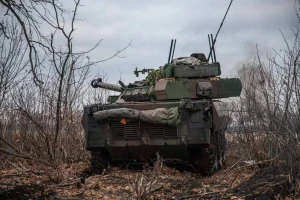
"We worked 15-20 hours a day." Ukraine’s border guard Liudmyla Kravchuk about rescuing soldiers in Mariupol
The woman has been working near Mariupol since the beginning of the full-scale invasion. She rescued wounded soldiers at the Illich plant. Then she was taken captive, and now she has returned to the army again
The story of the border guard is told by Espreso.
Liudmyla Kravchuk is an officer in the Social and Humanitarian Support Department of the Ukrainian State Border Guard Service. For many years, she worked as a practical psychologist in schools. In 2019, she decided to change her life completely and joined the army.
"I decided to radically change my life," says Liudmyla, "I even had thoughts of going abroad. But at that time, they were looking for new faces for the Border Guard Service, and I applied. That's how I came to serve. In general, I can easily adapt to any conditions. I'm a strong-willed person, strong in spirit, and I really enjoyed serving. Although it was hard to think: where I am and where the army is. But in fact, I really enjoyed it. Since I am so anxious in life, I had to come a little earlier to discipline myself a little bit."

That's how Liudmyla Kravchuk became a paramedic inspector at the State Border Guard Service of Ukraine. She had the desire to go to the East right when she signed the contract. But the woman was raising two daughters on her own, and at that time they were not yet mature enough to be left without a mother. Therefore, she first worked at a border checkpoint in Volyn, and in August 2021, she finally wrote a report and waited for a rotation. She first went to the front line in the Mariupol direction. The Ukrainian military was stationed in the village of Sartana.
"Before the full-scale war, explosions were constantly heard there," Liudmyla recalls. "They shelled our positions almost every day. I remember when I arrived, there were still holidays and people wished each other peace. It was quite noticeable to me. It made them different from us. The locals had already had experience of warfare."
Last year, on February 24, the Russian military launched an offensive from the direction of Lyudmyla's unit. On that day, Ukrainian soldiers had to quickly relocate and defend Mariupol. The woman admits that it was very difficult, because the city was constantly bombed. Aviation and artillery were working every day. Until mid-March, she evacuated the wounded from the outskirts of Mariupol, and when the hospital was bombed, she began to rescue the wounded at the Illich Steel and Iron Works.
"When the fighting began, the unit was on the outskirts of Mariupol," says Liudmyla. "We had to go to the position and take people away. Until March 15, the 555th hospital of the Ukrainian Armed Forces was still working. All surgical interventions, everything related to medical care was still there. When it was bombed, the doctors were divided into two parts. One of them went to Illich Steel and Iron Works, the other to Azovstal. We were in the basement, we called them bunkers. Operating rooms were equipped there. We worked 15-20 hours a day. At one time, there were several serious patients who needed to be operated on urgently. We worked all day until the evening, and then only at 11-12 pm we went to make bandages. And so it continued until three or four in the morning."

There were many different types of injuries. According to Liudmyla, they hardly paid attention to small shrapnel wounds, scratches, and concussions. They quickly treated them, wrapped them up, plastered them up, and the person went on to do their job. We worked more intensively with more complicated cases, when the wounded needed surgeries. Every day there were amputations of arms, legs, or even two limbs at once.
"Each case was extremely complicated," Liudmyla recalls, "and at the same time unique in its own way. We performed such operations that now I don't even realize how we did it. I remember that our neurosurgeon had a patient who had a perforating gunshot wound to the head. He survived despite the fact that we had to move from bunker to bunker and despite the endless shelling."
In mid-April, the situation with medicines became more difficult. We were running out of bandages, anesthesia medicines, food and water supplies. Then we decided to make a breakthrough or surrender. There were no other options. There was no way to leave the city. Liudmyla had no doubts, she refused to surrender to the occupiers.
"They approached everyone, and everyone had to decide individually," Liudmyla recalls. "I went to the military and asked them what they had decided: "We're going to attempt to leave". I said, "Take me with you, because I'm the only border guard, there's no one else like me here." They took me. We were leaving that factory, stopped, and it was already starting to dawn outside. Driving when it was daylight was a risk. Although later I realized that whenever we were leaving, it was just utopia. Then drones and an airplane started to appear, and we realized that they were going to cover us. So they started bombing, we ran away and were in the basement until the evening. Later we started going out. Everything was immediately agreed upon: if you were unable to walk or something happened, you would be wounded, no one would take you away, no one would drag you away. That is, everyone took responsibility for their lives and for themselves. We had no food supplies. The only thing I had was a weapon, a helmet and a bulletproof vest."
During this attempt, Liudmyla was captured by the occupiers. She stayed there for six months, and last October she was released as part of a large-scale exchange when more than a hundred women returned home.
Read more about Liudmyla's stay in captivity soon on Espreso.
- News










































